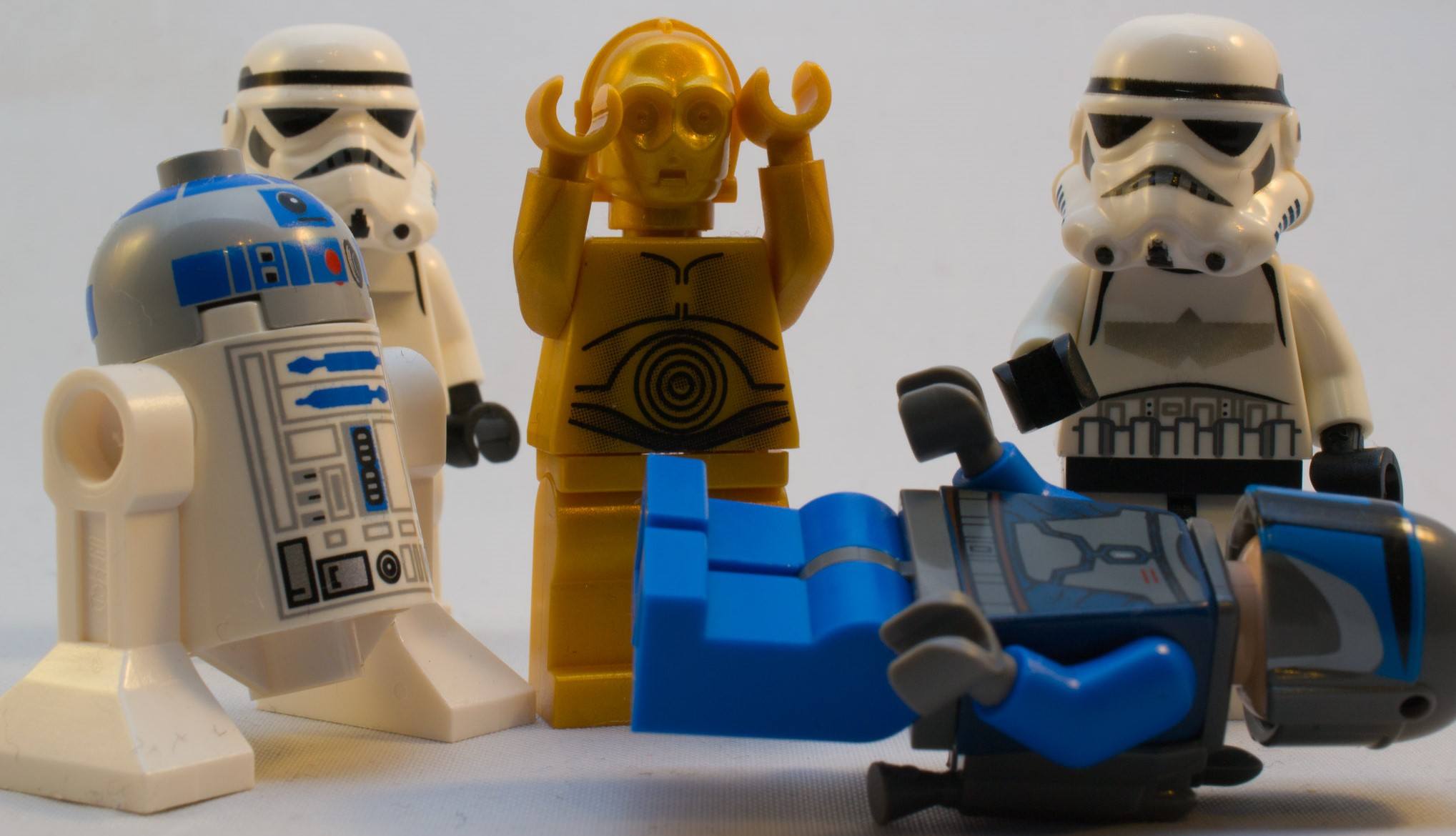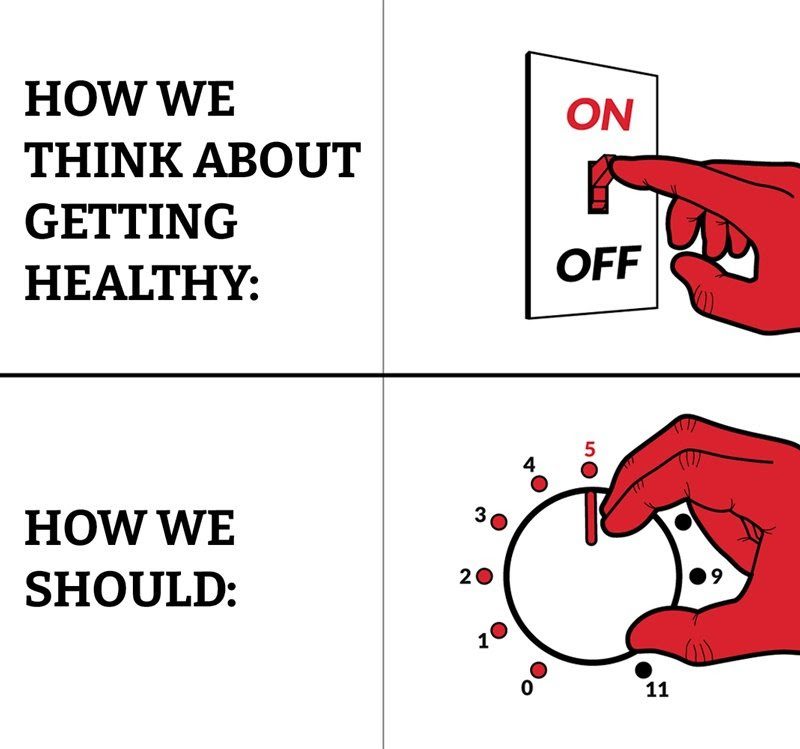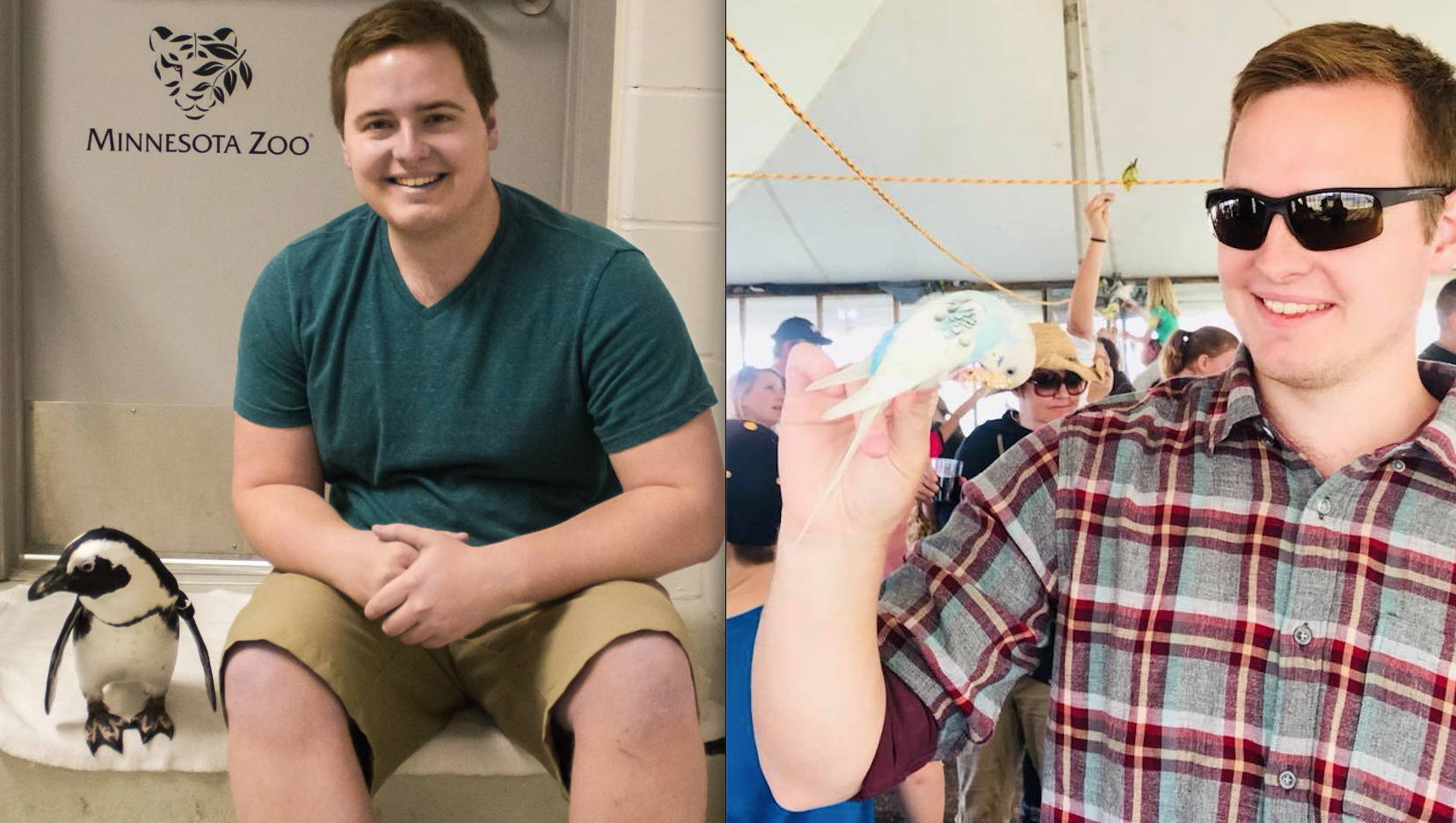Table of Contents


Did you know today is National Respawn Day?
This is definitely true and not a holiday that I just made up.
Okay, I did make it up, and it doesn’t matter what day it is – you’ve decided you want to try again (that’s awesome! 🙌 .) And you want to find a way to make changes that stick this time.
Luckily, whether this is the first time you’ve had to respawn or the 50th, you’re in the right place.
I’m going to share the same step-by-step strategy we’ve used to help 15,000+ nerds restart their fitness journey in our Coaching Program, and we’re gonna have a tiny bit of fun along the way.
Here’s what we’ll cover:
Why It’s Okay to Start Again


So you already bailed on a goal or habit or routine this year.
We all start with hopes and dreams for what we can accomplish, but then we encounter this ugly thing called “reality.” We find out that maybe we picked the wrong goal, or we tried to do too much, or life managed to get in the way.
This is amazing news!
As the saying goes, “Success is moving from failure to failure without a loss of enthusiasm.” So, congrats for already finding a strategy that doesn’t work for you right now.
Let’s get to work on fixing that!
First step’s first…
STEP 1: FORGIVE YOURSELF


When we stumble at a task or goal, that voice in our head will very quickly point out all the things we’ve done wrong or how we’ve screwed up.
We might call ourselves a nasty name, or berate ourselves for not having enough discipline.
There’s another way to think about this:
- You discovered a strategy or tactic that doesn’t work for you! For example, if you went Keto and bailed, great! That’s a diet that doesn’t work for you. I personally love carbs, so Keto sounds terrible to me too!
- Treat the voice in your head like a roommate. You just both happen to occupy the same brain. Just because our brain thinks something doesn’t mean it’s true! I like to imagine my thoughts came from Chaz, a weird roommate. He means well but he doesn’t always know what he’s talking about. Also, he has a ferret.
- It’s also possible the strategy or tactic is still USEFUL, just in a different context. For example, if you tried calorie counting, and it didn’t work, that doesn’t necessarily mean we have to throw out that tactic FOREVER. But we need to figure out why it wasn’t a good fit for us RIGHT NOW – so we can learn from it.
And you’re ready to try again.
This is amazing and should be celebrated.
As NF Coach Matt explains in the video below, “self-compassion” is really important when attempting to fulfill New Year’s resolutions:
STEP 2: ASK WHAT WENT WRONG?


Great! That’s information we can use, my scientist friend.
#1) You built an idealized goal for a romanticized view of life:
Life is chaos, and we all have a lot going on. When we expect to have a beautifully organized schedule, our kids won’t get sick, and work won’t run late…we’re setting ourselves up for failure.
And when we set our expectation at “perfect adherence to the plan,” one missed day can be enough to derail our progress completely.
Fortunately, as John Steinbeck wrote, “Now that you don’t have to be perfect, you can be good.” Perfection is a trap, so we’re instead going to focus on being pretty good, most of the time.
We need a plan that fits into the chaos that is life, and is not built for a perfectly clear schedule! Those don’t exist.
#2) You tried to change ALL the things:
- Your goal was 1,800 calories a day instead of your normal 3,000.
- You tried to run 7 days a week when you don’t exercise at all now.
- You said you were going to write 5,000 words a day but don’t write normally.
Instead of changing all the things completely or not changing anything, what if we changed a few things, a tiny bit?
We’re never going to get everything done, certainly not all at once. So like a video game, we need to stop trying to fight 10 level-100 dragons at the same time when we’re a wimpy level-1 wizard!
We need to pick ONE target, that’s our level, and then as we level up and get stronger, tackle bigger monsters.
So, let’s try to do less with our next experiment, okay? It’s better to laser-focus on building ONE new skill than it is to attempt to change so many things at once that we end up in the same place we started!
STEP 3: CHANGE A VARIABLE IN YOUR EXPERIMENT
For your next attempt consider adjusting one of the following:
Did you enjoy the exercise you attempted? If you discovered that you hate running, great! Never do that again. “Exercise sucks,” so I would pick something that sounds more fun.
Did you try to exercise 5 days a week for 60 minutes a day? What if you instead decided to go for a 5-minute walk every day to practice the habit first, and then increased the difficulty?
#2) Try a substitution rather than addition:
ADDING a brand new exercise routine into an already busy schedule can be really challenging. The same might be true with severely restricting your calories, which can be really uncomfortable and make you hangry and angry.
Let’s try this instead: Substitution! Here are three examples:
- Making healthy swaps with our diet: How you eat is 80-90% of the weight-loss equation, and you’re already eating every day. So focus on substituting a vegetable for fries once a week, or swapping sparkling water for soda. You can also keep a food journal and change up your breakfast twice a week.
- Temptation bundling: combine an exercise/activity you want to do with an activity we already love: Listening to a great audiobook, but only when we’re out for a walk or on the treadmill, or joining a friend on a bike ride (to a winery or pub!).
- Do ONE activity mindfully every day: meditation is amazing for developing the skill of being present and cultivating awareness, but it might be tough for us to set aside 20 minutes to sit alone with our thoughts. So why not practice being mindful during something you’re already doing! Practice mindfulness while brushing your teeth or washing the dishes in the sink. No extra time required, all of the benefits!
#3) Adjust your “win scenario”:
I get it. You were able to train in your home gym for the first few weeks of this year, going for at least an hour.
But THEN…work got busy. And you only had 30 minutes, which wasn’t enough time to get through your workout. So why not set the win scenario at “30 minutes,” or “15 minutes,” or “1 exercise”? Lower the bar!
This is not an on-off switch. It’s a dial that we can turn UP or turn DOWN based on how busy our life is that day:


We can stop asking, “Do I have time for my workout” and instead ask “What workout do I have time for?”
There’s nothing that says “a workout must be 60-minutes in a gym.”
A 5-minute walk with your kids. A 10-minute circuit workout between Zoom calls.
It all counts!
Feel free to turn the dial all the way down when life gets really busy, just don’t turn it off.
STEP 4: RESPAWN and try again




This next attempt might be the one that works for you too!
Keep trying differently, keep failing differently.
You can do this!
STEP 5: SUPERCHARGE YOUR RESULTS


For more strategies here, check out our guide Tracking Your Fitness Progress.
We have a free Nerd Fitness Facebook group with thousands of people ready and willing to support you!
As Coach Matt explains below, sometimes “outsourcing” help can be a real game-changer when trying to get in shape (or back in shape):
GET BACK IN THE FIGHT




For #5 (“Supercharge your results”), I have two perfect ways to help you respawn today:
Consider our Online Coaching program, and I also send out a free newsletter twice a week to help you stay motivated and entertained.
It’s the best newsletter in the galaxy, I promise you.
For the Rebellion!
PS: If you want more tips and tricks on how to stick to your goals this year, check out 5 Hacks to Effortlessly Build Healthy Habits in 2024.
###
Photo Citation: Oh My Goodness! Shut Me Down, The Iron Giant, “Hello, old friend. Is he ready for me?”, Happy Halloween!!, At the blacksmith’s (Part 2), Medieval Blacksmith


